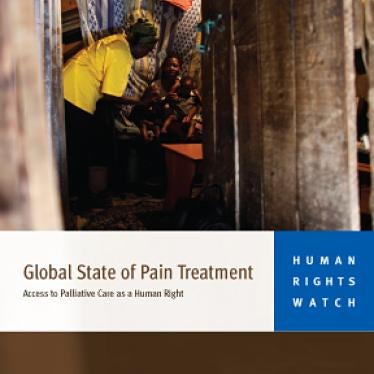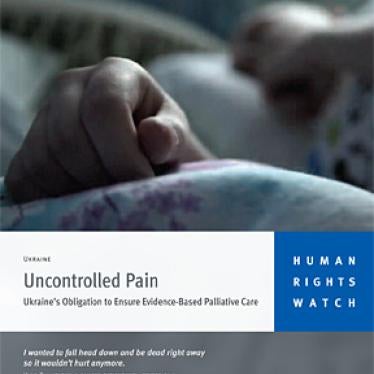I’ve been stopped by the police. They ask me where I’m headed. Drug users are not considered people; they can do anything to you. They just classify people in their minds—drug users at the bottom, then alcoholics and gypsies. They believe drug users are always at fault. They judge you by your appearance. They make you show them your arms, and if they see needle marks, they demand money—you pay or you can be detained. I did get detained, but another time I just put 100 rubles [U.S. $3.45] in my passport and I got off; it just happens that way.
The police were trying to get big money from me. They asked for 500 dollars; they wouldn’t ask straight off for so much without knowing that they could get it. [During my two-day detention] there was no talk of food. They even took my aspirin away from me—I had the flu.
The reason they let me go was that I was so sick that I couldn’t understand what they were asking me. But I had to sign a city arrest warrant. They detain a person and wait until he desperately wants drugs, and then they ask him for his contacts. The first question is always “Do you have any money?” If not, “Is there anyone who can help you [to get money]?” They’re not even interested in where you got your drugs, just how much money you can pay now and how much later.
- —Pavel O., 38, Saint Petersburg
I’ve been stopped by the police. They ask me where I’m headed. Drug users are not considered people; they can do anything to you. They just classify people in their minds—drug users at the bottom, then alcoholics and gypsies. They believe drug users are always at fault. They judge you by your appearance. They make you show them your arms, and if they see needle marks, they demand money—you pay or you can be detained. I did get detained, but another time I just put 100 rubles [U.S. $3.45] in my passport and I got off; it just happens that way.
- —Boris K., 25, Saint Petersburg
Six months ago, I went to a city clinic in my neighborhood for a consultation [with the gynecologist]. They did the standard tests, including blood tests. I went the second time three or four days later. It was a big scandal. They said I should have warned them that I was HIV-positive. They were shouting, and they pushed me out of there—they said, “You people know the place where you’re supposed to go.”
- —Natalya R., 26, Saint Petersburg
There are many where their parents don’t want them to live with them anymore. Many people just don’t tell anyone about [their HIV status] because they’ve seen what happens to others, and they’re scared. Many people have had the experience of being fired from work . . . . We have many plans, many people [with HIV/AIDS] who want to help each other . . . . Everyone understands that if we don’t help ourselves, no one will help us.
- —Oksana B., 25, Saint Petersburg






